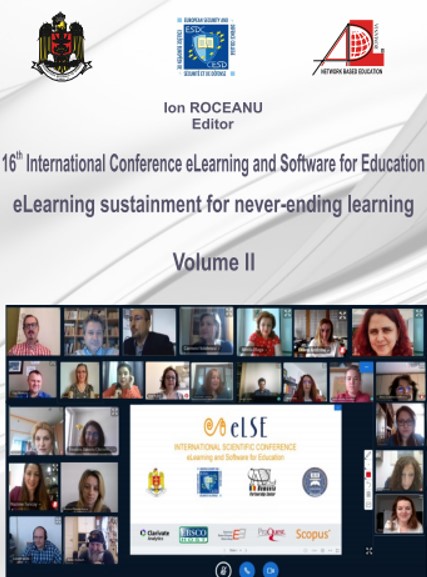TEACHER TRAINING FOR THE DEVELOPMENT OF COMPUTATIONAL THINKING AND PROBLEM POSING & SOLVING SKILLS WITH TECHNOLOGIES
TEACHER TRAINING FOR THE DEVELOPMENT OF COMPUTATIONAL THINKING AND PROBLEM POSING & SOLVING SKILLS WITH TECHNOLOGIES
Author(s): Alice Barana, Cecilia Fissore, Marina Marchisio, Marta PULVIRENTISubject(s): School education, ICT Information and Communications Technologies, Distance learning / e-learning, Pedagogy
Published by: Carol I National Defence University Publishing House
Keywords: Advanced Computing Environment; Automatic Assessment System; Computational Thinking; Problem Solving; STEM Education; Teacher Training;
Summary/Abstract: The new generations of students make great use of technologies in everyday life, and it is important that they do the same also for educational purposes to develop key competences, such as problem solving and computational thinking. Teachers are therefore called to develop digital skills to update their teaching methods using modern technologies. This allows them to prepare new incentives, provided with disciplinary and educational coherence in well-organized digital environments. This paper shows the results of a 32-hour training course for STEM teachers in lower secondary school. The aim of the course was to consolidate a “Problem Posing & Solving” culture through the use of new technologies, such as an advanced computing environment (ACE) and a digital learning environment integrated with an automatic assessment system, which allow the creation of interactive educational activities. During the course participants worked in groups on real-world problems through the technologies presented, with the purpose of creating digital materials to be used with their students. The didactic approaches adopted in the teacher training were problem-based learning, project-based learning and laboratory teaching, and the main topics covered during the course were: problem solving and computational thinking with an ACE; automatic formative assessment; problem solving and automatic assessment activities in a digital learning environment. The effectiveness of the course was assessed through questionnaires. Through the analysis of the questionnaires and the works produced by the teachers, two editions of the training course, involving a total of 40 teachers, will be analysed. The results presented in this article prove that the teachers showed deep appreciation of the course. A very important goal that has been achieved is that the teachers got involved in preparing teaching materials to be used with their students with the methodologies shown in the training course.
Journal: Conference proceedings of »eLearning and Software for Education« (eLSE)
- Issue Year: 16/2020
- Issue No: 02
- Page Range: 136-144
- Page Count: 9
- Language: English

